by Alex Shtaerman
When it comes to hardcore techno, Lenny Dee is not just a legend. He is the legend. As one of New York’s earliest techno pioneers, Lenny’s career inspired an entire movement when his famed Industrial Strength Records imprint became the world’s first hardcore techno label in 1991. Pushing the boundaries of sound and thought through his production and DJ sets for nearly two decades, in 2006 the Brooklyn native aims to further cement his legacy as one of urban dance music’s all time greatest innovators. Recently teaming with Holland’s DJ Promo for a number of acclaimed releases as well as a new label, Lenny Dee is back to doing what he does best. And if you’re a fan of underground dance music, you should know exactly what that means.
See pictures of Lenny Dee rocking Sullivan Room in New York City.
RIOTSOUND.COM: You are known worldwide for your profound influence on hardcore techno. What was your musical vision and mindset like in the late 80’s; what made you go in the direction you did?
LENNY DEE: At the end of the 80’s I was working on a lot of what you’d call the early techno music. It was [about] fusion and using samplers and break records. I started getting more and more into techno. I went through house music really quickly and I started getting into all this Euro-music and all kinds of different things. As I started DJing this music I was making it faster and faster until it got to the point where I kind of got bored with all the other stuff. I was a young kid and I was thinking – man, all these kids are really going crazy [to this music]; there’s got to be more to this than what’s happening.
I was buying records where I would have to do things with my DJing in order to make these records sound hard. A lot of DJs had a lot of the same records that I had but my catch to the whole thing was playing everything all at once and giving [the people] a massive bang over the head as opposed to some DJs just milking you until you get to that one great track. So they coined me as this “hardcore” DJ which, in fact, I didn’t think much of at the time. I was like – I’m a disco boy. Back in the day I also worked for Arthur Baker [producer of the Soul Sonic Force]; I wrote some stuff with Globe from Soul Sonic Force and a few other guys back then.
So what I did is I took all of these experiences together; all the stuff from my DJing and from my producing up until that point and kinda just said – I’m gonna throw all this in the trash and I’m going to try to make [music] that’s really over the top. I went to Germany for a gig to play some of this hard techno that I was getting into at the moment and all of a sudden I met this guy Marc Acardipane. By chance he was like – I’ve been listening to your music, I think it’s really great; I want you to check something out.
Lo and behold, this kid had created THE track “Mescalinium United”, which [would become] Industrial Strength 001. It was basically everything that I was looking for and more. Instead of making the tempo fast to make it hard, he kept the tempo kind of the same as everything else. But what he did is he started distorting and overloading. Instead of using conventional synthesizer sounds to make the riffs, he was using microphone feedbacks and sampling them. I had some tracks that I was working on literally at the same time that were unfinished but were sort of in the same vein. So I says to [Marc Acardipane] – man, we are on the same brain, I cannot believe I actually met you.
I also met another producer and from there we used the “Mescalinium United” record. All of a sudden I have this test pressing, this acetate actually, it wasn’t even a test pressing. I had a big gig in Germany, Mayday 2, with about ten thousand people and I put this record on as the first record. And I have to tell you, I’ve never seen still, to this day, ten thousand people put their hands up and scream all at the same time. I went on after Jeff Mills and even Jeff was like – man, what the hell is that?! After that all hell broke loose. I just cut my ties and I ran like the wind [laughs].
It was all a bit of chance and a bit of my intuition [as far as] what I liked; and then I tried to use my DJing to convey that. I found the right guys and my own vision of production just opened up after that. With ISR, we were a young label, I had worked at other labels like Nu Groove and Forth Floor prior to this so I had an understanding of how record labels ran but [at the same time] we were like – oh, I don’t know if anybody’s gonna buy this. Next thing you know we got 4000 orders. All of a sudden we’re looking at each other going – boy, I better get in the studio and make some more of these records. I was in shock. For the [previous] eight years of me DJing, it was pretty much like banging my head up against a wall and then all of a sudden I guess it paid off. So any of you DJs out there, believe in what you believe in baby and just go for it.
RIOTSOUND.COM: It seems like everything happened so fast with ISR, in the initial stages did you at all realize you were doing something very special?
LENNY DEE: In my heart I knew it was to be true. I was DJing this hard style of music a full year before I started the label. So I said to myself, why are all these people dancing and really getting into it? I’ve had hits with Frankie Bones, Victor Simonelli, it was sort of this groovy stuff that I was working on [back then], and that stuff was doing really well for us. But I was living in Brooklyn while all the records were kicking off in Europe. The sound from Industrial Strength, it had something. So I thought, you know what, it’s either all going to fall by the wasteside or I think it’s going to really open up because I don’t think there’s anything like this anywhere. And bang! I didn’t see it coming.
When I put that acetate on at the Mayday party, I didn’t expect that. After that things just started happening really fast. I was in Europe most of the time, I was a young kid; I was still living at my mother’s house, so I was kinda free to really explore. And thank god I was because if I had any big commitments or if I was maybe a little older, I don’t know how I could have dealt with all the things that were happening. It was a lot of hard work and I didn’t take any of it for granted at that point.
We only had enough money to do three records. The first record came out and really really banged! Then the second record came out and that was doing ok too. Then we released “A Homeboy, A Hippie & A Funki Dredd” and it just went up again. It just seemed like everything that I was picking was doing the right thing. We didn’t expect to sell a certain amount; we were just hoping that people would like [the music]. The philosophy of it was my gut feeling of what I was picking and what I was listening to. I’ll tell you, if I had to do it again I would do it the same way. It’s a feeling that you can’t take away, for sure.
RIOTSOUND.COM: While your music was received better in Europe as opposed to the United States; being a native of Brooklyn, did you feel you were doing what you were doing from a New York standpoint?
LENNY DEE: I felt like I was doing it from a frustrated standpoint where I felt like this country really kicked me in the face. I was doing those records out of my heart. As a kid I didn’t know how to play a piano, didn’t know how to do any of that. I taught myself how to do everything. I made the records on the spirit of what we were doing and our vibe. We didn’t really look at America and Europe. As things started to take off, I started to realize, I’m playing in front of ten thousand people and doing all this and that; I should be able to do this back home. I mean, I can’t see why the fuck not? And I’ll tell you, the doors were definitely not open. They looked at us as I don’t even know what, to be honest.
We weren’t these clicky DJs or these fashion DJs, we were like the Hip-Hop guys of techno. We were the underdogs. Nobody gave a shit about us at first and then all of a sudden here we are with this sound and we’re just taking this sound as far as we can go from the fuckin’ heart. One of the reasons that Industrial Strength was even started was because when [my sound] began to get harder and harder, I was, in a way, using Industrial Strength as a [statement] – this is my sound I’m not going to let any of you stop me. And I just used that frustration and instead of turning it into negativity, which a lot of my friends in Brooklyn for sure have, I just turned it into music and into positiveness. I used the hard sound to express what I was going through.
A lot of the acts from New York that we did sign [to Industrial Strength] all had that same vibe. They’re making this music that’s not really metal, it’s not punk; it doesn’t fit into any dance format in the United States. It certainly wasn’t Hip-Hop; it kinda had the samples and all the same vibe except for being 98 or 100 BPMs. It was about 180 BPMs or 150 BPMs. We had the same kind of spirit and the same sort of vibe and we just carried it and used [the fact] of us being [in the US] to take a step back. And the Europeans loved it because we weren’t making music like they were. We were influencing their kind of music and in turn they were influencing Frankie [Bones] and me and [Tommy] Musto at the time.
RIOTSOUND.COM: Having seen hardcore techno evolve from the early 90’s until today; what can you say are of the positives as well as some of the negatives, as far as the last few years go?
LENNY DEE: The last few years it’s been pretty tuff. The negative side [for me] was that the label got to a massive point during the mid ‘90’s and I was DJing a little bit too much and spread too thin and I didn’t realize that the train ride would end at some point. What started to happen was some of the business relationships the company was involved in went sour. Things just started to go a little crazy. That was the bad side. I realized that I have to put my suit and tie on at some point and become a business man. So that was one thing.
Then with the music itself, it hit me in the head as it started to get too whishy washy, cheesy, commercial, ravey or what you’d call happy hardcore now. I conformed to it, I won’t lie. I’ve done some records where I was feeling [that] vibe. But my label started to suffer and my way of thinking started to suffer. I said – why am I doing this? This is for candy ravers. I didn’t start this to play to kids and make cheesy music and try to make money from it. That’s not what I wanted. I want my electronic roots.
Basically I stopped everything by ’98. I took a break. I said – I’m going to shut the company down for a bit because I’m getting a little sick of everything. I had to physically take a step back. We restarted again in 2000 and we started in Europe. The most positive thing was; the actual sound of hardcore went through this big bad slump of not selling and really getting bad reviews, to now, where it’s moving in a really great direction. We are now working closely with Third Movement and DJ Promo from Holland. Promo’s vision with the Third Movement label is the same as [my vision]. It’s hard, it’s electronic, it’s experimental and it crosses barriers. Sometimes you get a little bit of cheese in there but you know I like cheese on my pizza [laughs]. But [the music] doesn’t base itself around that and it doesn’t base itself around those really fast hardcore tracks where, yea they’re fast, but they’re just silly.
I think the positive thing is that the producers now that are coming into it have that same [mindset] again. I guess it just had to recycle. It went through a few stages. For me the worst was at the end of the ‘90’s and the beginning of 2000. For us that was really bad. I was pretty much DJing at that point for so long and I just said – I’ve been touring now for eight years straight every fucking weekend and running a label, A&Ring, producing tracks. It just all hit me. I guess the word hardcore finally hit me in the head. I said, alright Mr. Hardcore, you need to be Mr. Chillout. So I went to Australia and I met my partner Julie, who runs Industrial Strength now. We put a new fresh life into it. That’s pretty much the biggest up and downs that I’ve seen that affected me directly.
RIOTSOUND.COM: You recently teamed with DJ Promo to create the new Industrial Movement label. What kind of music will you be bringing to the forefront with Industrial Movement and how would you say the sound of Industrial Movement compares to what you were doing with ISR in the 90’s?
LENNY DEE: With Industrial Strength, it’s been hard to top it. What I did with the first twenty or thirty [Industrial Strength] releases, that whole time period [is hard to duplicate]. Our vision is Industrial Movement. When I met Promo it was [shortly] after September 11th. Not only did my apartment, which was a couple of blocks from the World Trade Center, get kinda trashed; about three weeks later there was a fire next door to the new studio that I just finished putting all my stuff in. It literally took everything from me. I saved some of the records but the water damage destroyed my studio. There was a period of time after that where I was pretty depressed.
I met this guy Promo at a gig and he’s like – when’s the next Lenny Dee record? I told him what happened [to my studio]. So he says, why don’t you come to my studio and we try something together. We made this record “I Called You” and we started working on this other project called “Electronic Pig”, funny enough [laughs]. So we hit it off; our first single together blew out like 3400 12 inches, which nowadays is probably considered a big record [laughs]. So we were like – whoa, this is fantastic. We made some more music together and we finally hit this point where we were talking one time and we looked at each other and it was like, this smells like a label.
We decided to take some of our artists and have them do things that they would not normally do for Industrial Strength or for [Promo’s label] Third Movement. We wanted to give the artists a little bit more freedom so they wouldn’t have to worry about delivering a [certain kind of] track. With Industrial Movement we only do 1,000 copies of every piece, that’s it. White vinyl, digitally mastered on a Neve Console, it’s recycled vinyl, recycled jackets; the packaging is very low key but still very classic. Every artist that we are choosing at this point are new guys with a fresh outlook on things or some older guys who’ve been working under their pseudo-names and are now coming out with new projects. We’re giving artists a little bit more freedom to fuse [different genres and be creative].
Some of the releases may be a little bit weird for some and sometimes they are [also] right on the money for some DJs. We kind of do it as an experimentation of the two visions that [Promo and myself] have. We also signed this band Moshpit to Industrial Strength, which I think is one of the first new metal bands that features more of an electronic edge as opposed to like Slipknot, which features more of a rock edge. I’ll tell you, the band is off the hook. They have a video that we’re coming out with now for the track “We Killed Jah” that just won an award in France for “Best Young Talent” at the ‘Cap D’Adge’ International Clip festival. The judges were the video directors for Prodigy, Hole, Oasis and all these other well known acts. (Editor’s note: check out Moshpit’s new award winning video, click here.) So I’m seeing this feedback and I’m like – this reminds me of 1991. Things are just starting to happen again and I’m a little unsure why. I thought people had enough of all this. But at the same time I think this new outlook and this new breath of fresh air that we’re putting into it [is what’s driving it forward].
DJ Promo is such a wicked producer. His label literally, I feel, took hardcore out of the hole when we were breaking off and put it right back to where it needed to be. Hence the Third Movement; Industrial Strength being the first movement and the second movement being the happy hardcore phase, the cheese; and now the industrial hardcore revolution [happening again] is the Third Movement. That was the concept of Promo’s label. When he told me this I was like – I love you dude [laughs], you are just right on it; you got a philosophy behind the madness.
Experimentation and what develops from it is really what Industrial Movement is about, as opposed to just saying that “this is our vision for it”. My vision is Industrial Strength, Promo’s vision is Third Movement; Industrial Movement is the two of our heads banging together. That sounds a little vague; I should be a little bit more direct. But I really think that when I was direct before I put myself into a corner where nowadays I’m a bit more open to check out more electronic music like techno and more industrial hardcore and fusing and playing the two together, which has been off the hook in my DJ sets. I’m going from crazy grungy techno records into banging slow industrial. When I say industrial, I mean not in the classic sense of industrial but it’s actually the sound of what they call “hardcore”.
I think everything is looking real good. I’m getting loads of new guys from Australia, France, Belgium, Holland, New Zealand and Canada. With our label, our graphics guys are from Germany, Canada and Holland. We’re now diversifying and I’m outsourcing more than I did even with Industrial Strength in prior years. So it’s been like a new awakening to me.
RIOTSOUND.COM: Recently you played a set with Frankie Bones at the annual Mayday party in New York City’s Tompkins Square Park. How do you feel when you play a free park jam in NYC as opposed to traveling abroad and playing to huge crowds? Is there something special about an event like that in New York?
LENNY DEE: I love it. The only thing is I wish that Frankie lived in Brooklyn and we had a little time to practice. I know we can play much better. We were kinda disjointed. But also with that party, which was the lovely thing about it all, it reminded me of a fuckin’ block party with all the mistakes, all the sound, all the police and all the crazy people. That vibe alone is priceless. You can make a MasterCard commercial about it because it [really] is priceless. There was such a great vibe and such a wicked feeling. I love to play in New York. I’ll be honest with you, if I could play here all the time I definitely would do it. The only thing that doesn’t allow me to do that is that I have such a strong foundation in Europe and that’s sort of where all the big action is, in a sense.
Even with Industrial Strength, our office is in New York but all of the label’s manufacturing is in Germany and my publishing is in Holland. I’m so stretched out over there that I sort of need to be over there. I didn’t turn my back on America or New York but I just feel like I had no choice. I was just not getting the type of responses here that I was getting [overseas]. With the club owners and promoters, it’s a whole different business here. But I love it here. I’m playing a party tomorrow in New York City for Blackkat, the same guys that threw the party in Tompkins Square Park, and that’s going to be awesome. I love those guys. [The parties] are always super cool, it’s underground. And I don’t give a shit, I just want the kids to come out and have a good time.
I don’t really think I play the same in Europe as I play here but at the same time I feel a different vibe when I’m here and I’ll play some different kinds of tracks or I’ll take a risk and maybe start out a little bit more mellow. I just feel pretty wild in New York, I feel pretty different when I’m here. When I’m in Europe I have a different mindset when I play. [In Europe] it’s usually a lot of guys playing the same kind of style, or [something to that effect].
RIOTSOUND.COM: Do you feel that when you play in Europe you are, in a way, expected to play a certain style or put on certain tracks, while in New York you are a little more free to do whatever you feel like doing?
LENNY DEE: Fuck yea [laughs]. Sorry I cursed, I’m from Brooklyn [still laughing]. I definitely do. I feel more open here like I don’t need to play some of the records over here that I play in Europe. In Europe, I’ll give you an example – I went from Holland on Thursday night, to Germany Friday night, to the west of France on Saturday night and then I went back to Paris and then back to New York. I come back and I’m like – whoa, what the hell happened there?!
It’s just like a different sort of vibe out there. Even though not all the parties are always packed and massive, it’s a bit more steady. There are a lot of younger DJs and also guys like me, where we can work. It’s not always about the money. If you’re a DJ and you can play three nights a week and you want to play out, you gotta go where the action is. And I really wish that New York would get a nice kick in the ass again. With Blackkat and all the parties here, if I can get on them I definitely do it, without a doubt. I try to give back. Fuck it, I do my thing in Europe, come back here and play a party in the park and piss off all the police on a Sunday; why not?! Let’s do it! I’m always up for a crazy party.
For more news and info on Lenny Dee, Industrial Strength Records, Moshpit and Industrial Movement, stay tuned to www.IndustrialStrengthRecords.com





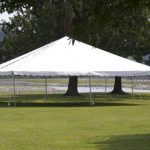
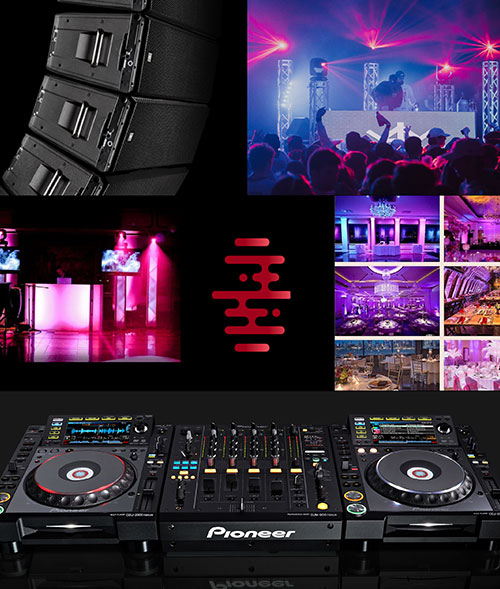


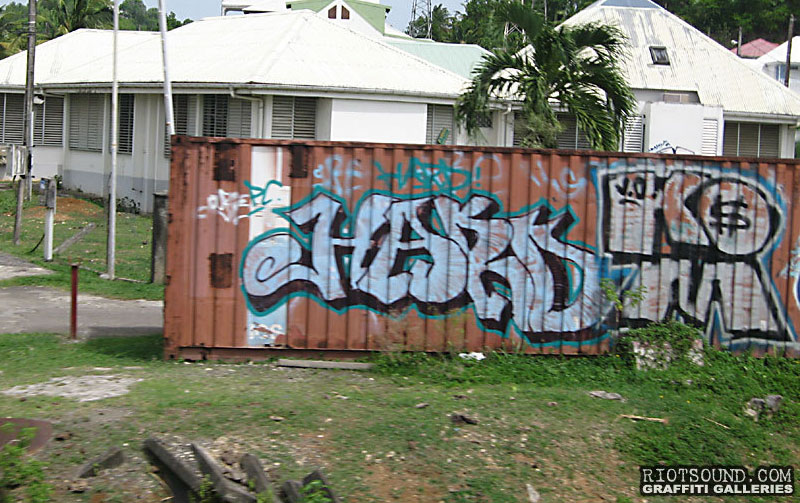

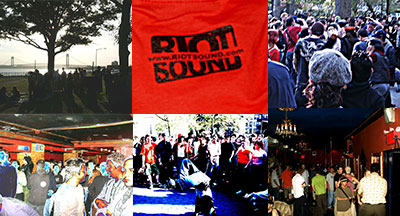
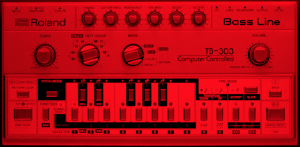













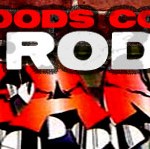



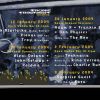

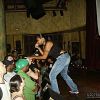
Comments